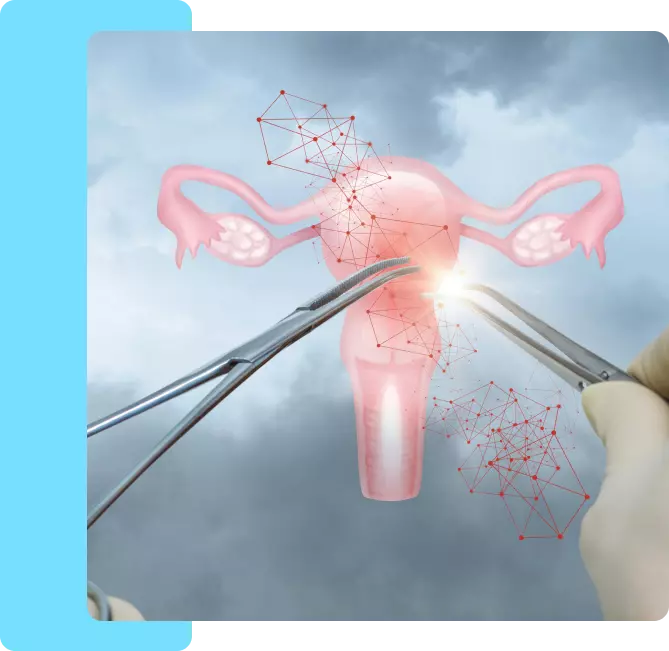
Recurrent pregnancy loss (RPL) refers to experiencing two or more consecutive miscarriages. While a single miscarriage is common, repeated losses can be emotionally and physically overwhelming, leaving women feeling frustrated and helpless. RPL, defined as losing pregnancies before the 20th week, requires medical evaluation to identify underlying causes and explore treatments.
Though it’s not uncommon for women to experience a miscarriage, having multiple losses requires medical attention to understand the underlying causes. Understanding the condition and available options can improve fertility and future conception outcomes.
Miscarriages, particularly recurrent ones, can stem from various genetic or medical factors. Here are the common causes healthcare providers assess when diagnosing repeated losses:
Genetic issues in the embryonic stage are at the heart of several repeat miscarriage cases across the globe. If there are more than or less than the pair at any given time, the embryo will probably be a miscarriage. These genetic problems can happen randomly and are often not related to the parents’ genetic makeup. However, in some cases, the parents may carry a genetic condition called a balanced translocation, where a portion of a chromosome is rearranged. This can enhance the likelihood of miscarriage.
Some medical conditions make it possible for a woman to lose her pregnancy at an early stage. There are various medical complications related to pregnancy, including diabetes, thyroid problems, and autoimmune diseases. For example:
Another factor of recurrent miscarriage is chromosomal anomalies. Chromosomes are structures that carry our genes. A problem with chromosome numbers or structure can lead to abnormal cell development. For instance, a common chromosomal abnormality is Down syndrome, where an extra chromosome is present in the cells. Chromosomal issues can often result in early miscarriages because the embryo cannot develop correctly.
Cervical weakness or incompetent cervix is another contributory factor to repeated miscarriages, especially in the second trimester. The cervix is supposed to be closed during pregnancy to give the baby a good environment in which to develop. In women with cervical weakness, the cervix begins to open too early, which can lead to premature birth or miscarriage. This condition is often diagnosed after multiple losses. Further, it can sometimes be treated with a surgical procedure called a cervical cerclage. This assists in keeping the cervix as a barrier to childbirth during pregnancy.
Frequently, there are situations when all tests and evaluations allow stating that the cause of repeated miscarriages is unclear. This is explained as unexplained recurrent pregnancy loss, The definition of which has been outlined above. Though frustrating as it may be, that is not a misdiagnosis that one hears of frequently. In such cases, doctors may suggest lifestyle changes, blood tests, or other treatments to improve the chances of a successful pregnancy, even if a specific cause is not identified.


When a woman faces two or more miscarriages, identifying the cause becomes essential. Doctors start with a thorough medical history and physical exam, focusing on past pregnancy complications and overall health. Based on the findings, they recommend specific tests to uncover potential issues. Common diagnostic tests include:
Genetic Testing: Cytogenetic analysis can be used to look for chromosomal anomalies in either parent or fetus.
Blood Tests: Done to see whether one has hormonal imbalances, blood clotting problems and other autoimmune diseases.
Cervical Evaluation: If cervical weakness is likely to be present, then a doctor may carry out other tests to determine how strong the cervix is.
Hysterosalpingogram (HSG): This X-ray tests for structural defects in the uterus that could include fibroid formation or adhesions that could harm a pregnancy.
Ultrasound: An ultrasound can show the structure of the uterus and assess the condition of the cervix. This makes it easier to look for more details on any factors that lead to pregnancy loss.

The mode of treatment after the identification of the cause of recurrent miscarriages is then considered. Treatments vary depending on the identified issue but can include the following:


While not all miscarriages can be prevented, there are steps you can take to support a healthier pregnancy, including:
Avoid Smoking and Alcohol: These can increase the risk of miscarriage, so it’s crucial to avoid them when trying to conceive.
Take Prenatal Vitamins: Folic acid also helps prevent some types of congenital disabilities and is necessary for healthy pregnancy.
Maintain a Healthy Weight: Carrying too much or too little weight can raise the risk of miscarriage. Hence, it is essential to maintain a healthy weight.
Follow a Healthy Diet: The consumption of foods containing vitamins and minerals and high amounts of protein may help establish a healthy pregnancy.
Manage Chronic Conditions: These include diabetes, thyroid illness, high blood pressure, and others that need proper control during pregnancy and before getting pregnant.
